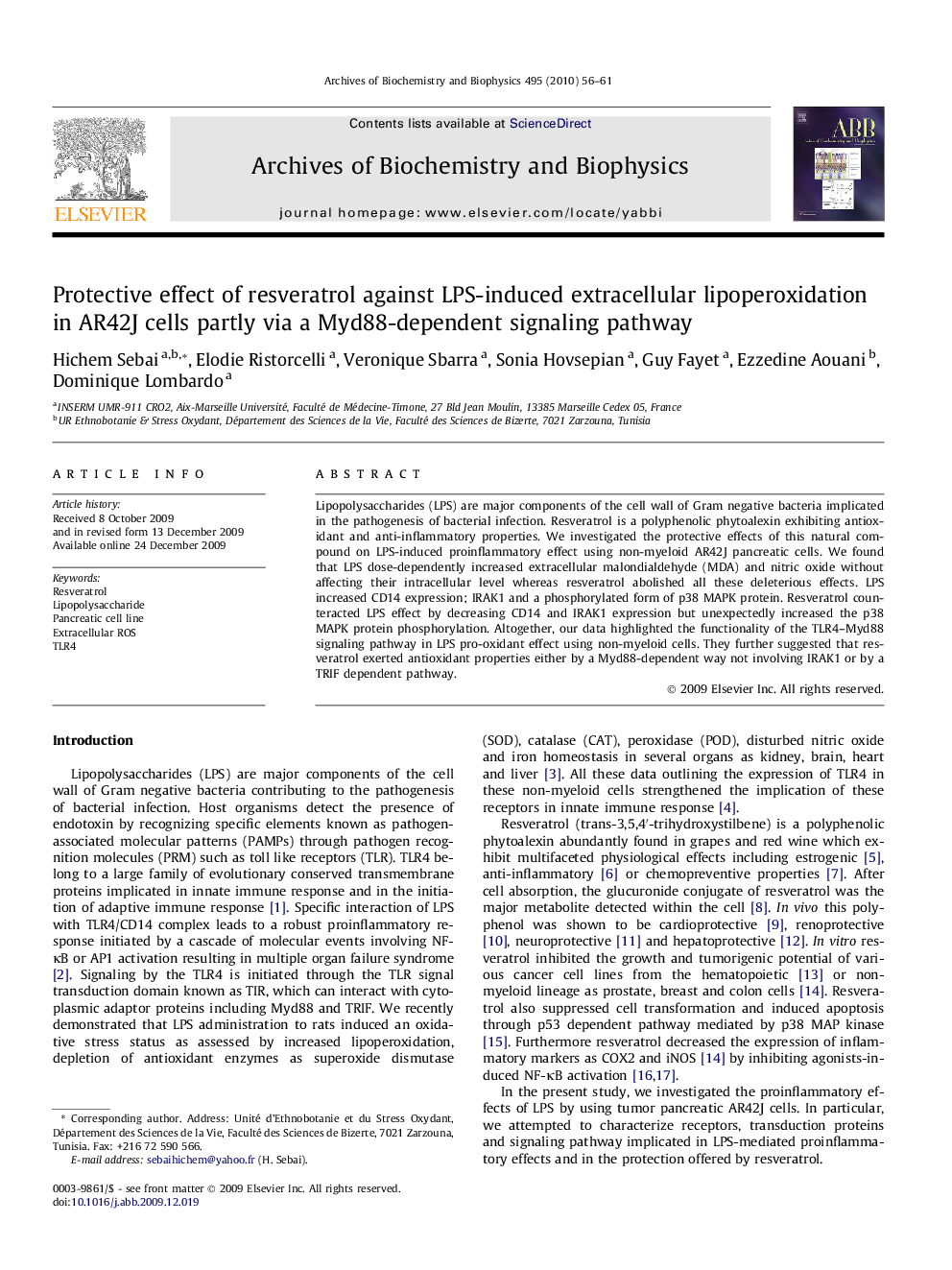| Article ID | Journal | Published Year | Pages | File Type |
|---|---|---|---|---|
| 1926168 | Archives of Biochemistry and Biophysics | 2010 | 6 Pages |
Lipopolysaccharides (LPS) are major components of the cell wall of Gram negative bacteria implicated in the pathogenesis of bacterial infection. Resveratrol is a polyphenolic phytoalexin exhibiting antioxidant and anti-inflammatory properties. We investigated the protective effects of this natural compound on LPS-induced proinflammatory effect using non-myeloid AR42J pancreatic cells. We found that LPS dose-dependently increased extracellular malondialdehyde (MDA) and nitric oxide without affecting their intracellular level whereas resveratrol abolished all these deleterious effects. LPS increased CD14 expression; IRAK1 and a phosphorylated form of p38 MAPK protein. Resveratrol counteracted LPS effect by decreasing CD14 and IRAK1 expression but unexpectedly increased the p38 MAPK protein phosphorylation. Altogether, our data highlighted the functionality of the TLR4–Myd88 signaling pathway in LPS pro-oxidant effect using non-myeloid cells. They further suggested that resveratrol exerted antioxidant properties either by a Myd88-dependent way not involving IRAK1 or by a TRIF dependent pathway.
